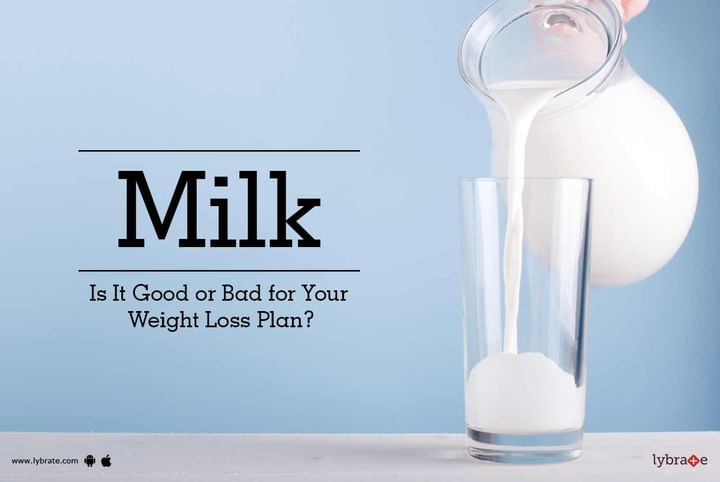Milk - Is It Good or Bad for Your Weight Loss Plan?
Milk is nutritious, but sometimes, avid dieters shrink away from consuming milk. It is generally believed that the fat content in milk hinders weight loss. On the contrary, milk has a lot of benefits.
Here are some facts you need to remember before you say no to milk:
- Nutrients and milk: Particularly, milk is an excellent source of zinc, vitamin B, protein and most importantly, calcium. So when you ditch milk in your crusade of weight loss, you skip out on calcium, the mineral primarily responsible for good bone health. Some studies suggest that calcium can actually add to weight loss, but this needs more research to back it up.
- Health and milk: Previously milk did get a bad reputation when it was linked as a supposed cause of stroke and heart attack. But a recent study produced a result which proved the complete opposite, milk can actually prevent stroke and heart attack! According to research, milk can actually lower your blood pressure and cholesterol levels.
- Muscles and milk: Milk contains whey and casein protein, both of which are high-quality proteins if you are looking to build muscles. Whey is a fast protein (gets digested faster) while casein is a slow protein (gets digested slowly). Your body gets a good and healthy supply of proteins when you consume milk, so don’t write it off just yet.
- Fat and milk: As mentioned before, calcium can cause your body to burn fat. There is research pending on it, but the preliminary results suggest that dieters shouldn’t skip out on milk. You might argue that you can just consume calcium supplements in that case. However, it has been discovered that other milk proteins to add to fat burning, which you cannot get from supplements. Milk is good for you, but it isn’t a miracle weight loss food. So yes, you will need to follow a healthy diet as drinking a glass of milk with a couple of doughnuts will not help you at all.
So, milk is not all evil as people think it to be. It could be good for your weight loss plan. And the best way to incorporate milk into your weight-loss diet is to consume the low-fat skimmed milk variant than the whole fat milk as you get 90 calories from one cup of skimmed milk as compared to 150 calories from whole milk with nearly the same protein and calcium content. This way you get the best of milk without worrying about the fat in it plus an extra fat loss of 1 kg (9000 calories) from 150 cups over the time with a saving of 60 calories in each cup. If you wish to discuss about any specific problem, you can consult a doctor.



+1.svg)
